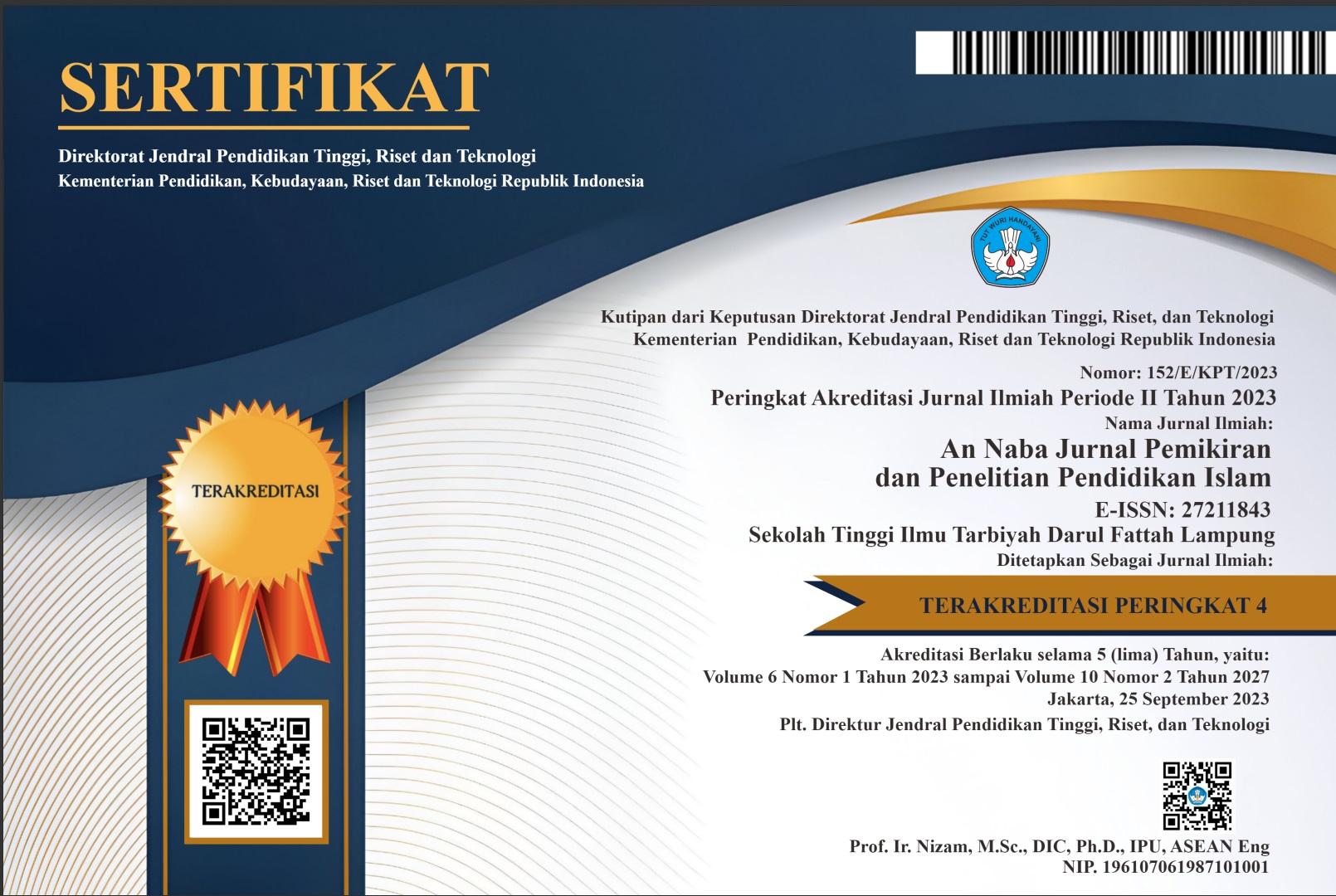Peran Kecerdasan Buatan (Artificial Intelligence) dalam Mendorong Inovasi Manajemen Pendidikan Islam di Era Revolusi Industri 4.0
DOI:
https://doi.org/10.51614/annaba.v7i1.388Keywords:
: kecerdasan buatan, manajemen pendidikan, inovasi, Revolusi Industri 4.0, pendidikan IslamAbstract
The industrial revolution 4.0 has driven the rapid development of digital technology, including artificial intelligence (AI). AI has great potential to transform Islamic education management to be more efficient and quality. The purpose of this study is to explore and map the role of AI in driving innovation in Islamic education management. This research uses a qualitative method with a literature study approach. Data were collected from various sources such as journals, books and research reports related to the topic of AI and Islamic education. The study results show that AI plays a role in automating administrative processes, improving the quality of learning through personalization, and opening up opportunities for the development of more adaptive Islamic education models. However, the implementation of AI requires careful preparation regarding IT infrastructure, human resources, and a multidisciplinary collaborative approach. It is concluded that with adequate preparation, AI can make a significant contribution to the innovation of the Islamic education system in the digital era. Further research is needed to formulate contextualized AI implementation guidelines in Islamic education settings.
References
Al-Emran, M., Mezhuyev, V., & Kamaludin, A. (2020). Technology Acceptance Model in M-Learning Context: A Systematic Review. Computers & Education, 147.
Arifin, Z. (2021). Pemanfaatan Teknologi Kecerdasan Buatan (Artificial Intelligence) dalam Pendidikan Islam. Jurnal Pendidikan Islam, 8(2), 227–244.
Aziz, H., Qodri, A., Ansori, A. N., Irawan, D., & Fauzi, A. (2021). The Opportunities and Challenges of AI Implementation in Islamic Education. Tadris: Jurnal Keguruan Dan Ilmu Tarbiyah, 6(2), 221–232.
Aziz, H., Quraishi, Z., & Kazi, A. S. (2021). Artificial Intelligence and its Role in Near Future. Journal of Information Technology, 1(1), 14–20.
Basar, M. R., Ahmad, R., & Salleh, M. J. (2021). The Roles of Artificial Intelligence in Learning Difficulties Detection. International Journal of Advanced Computer Science and Applications, 12(6).
Hussin, A. A. (2018). Education 4.0 Made Simple: Ideas for Teaching. International Journal of Education & Literacy Studies, 6(3).
Lee, M. K. (2019). AI-Based Student Profiling And Learning Analytics: Educational Implications and Issues. Research and Practice in Technology Enhanced Learning, 14(1), 13.
Murdiyanto, E. (2020). Penelitain Kualitatif Edisi 1. UPN Yogyakarta Press.
Pramana, I. M. A. D., Candiasa, I. M., & Surya, I. B. K. (2021). Literature Review: Implementation of Artificial Intelligence in Education. International Journal of Instruction, 14(3), 869–888.
Pratono, A. H., Kurniawan, T., Maharani, T., Widyanto, A., Permata, R., Minarsih, M. M., & Choi, S. B. (2022). The Readiness of Islamic Boarding Schools in Implementing Education 4.0 in the Industrial Revolution Era. International Journal of Evaluation and Research in Education, 11(1), 409–420.
Yusoff, M., & Salim, S. S. B. (2020). A Review of Preparing Future-Ready Students in Facing IR 4.0 Challenges. International Journal of Evaluation and Research in Education, 9(4), 877–884.
Zawacki-Richter, O., Marín, V. I., Bond, M., & Gouverneur, F. (2019). Systematic Review of Research on Artificial Intelligence Applications in Higher Education–Where are the Educators?. International Journal of Educational Technology in Higher Education, 16(1), 1–27.














.png)




